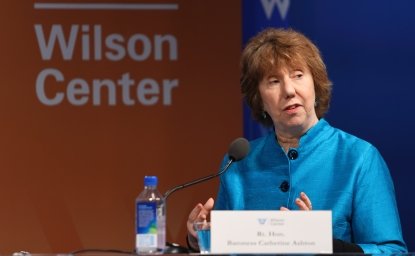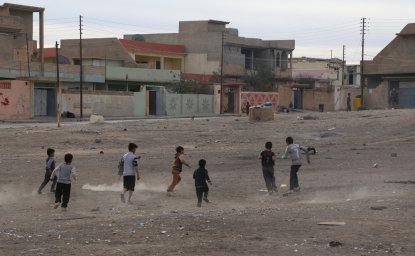Is the U.S.-trained Iraqi Army capable of containing ISIS and maintaining control over the entire country without U.S. or other foreign support? Or will U.S. support—military, intelligence or financial—be necessary long-term?
No, the Iraqi Army is not capable of containing ISIS due to sectarian polarization among the military leadership as well as the usual challenges that conventional forces face in insurgencies. Without U.S. assistance, Iraqi forces could at best keep ISIS from controlling broad swarths of territory. So, yes, Iraq needs U.S. support in many ways. But under the pressure or intimidation of Iran, the government in Baghdad might erroneously conclude either that it can cope without U.S. or coalition support, or that even a robust ISIS presence in the Sunni Arab areas is preferable to a U.S. military presence. The latter probably reflects Iran’s view in what it believes is its most valuable vassal.
ISIS and its predecessors emerged, in part, because Iraq's Shiite-dominated government failed to incorporate Sunnis into the political system. What progress has the government made in incorporating Sunnis into the political system? What does the government still need to do? What has the United States urged the Iraqi government to do to prevent the return of ISIS or new waves of jihadism?
Very little progress has been seen. That would require a major effort to incorporate Sunni Arabs into the security forces, remove Shiite militias from Sunni areas, and accept real power-sharing among disparate sects at the national level. Under immense U.S. pressure, Iraq incorporated some Sunnis into the security forces briefly between 2007 and 2009, but it has not managed to agree on a formula to share political power since the U.S. invasion in 2003. Washington has admonished Baghdad, but with little impact. Iran has pressed for the opposite, with better tools of persuasion and intimidation. The United States has only once conditioned assistance to meaningful steps to reintegrate Sunnis, when it limited military assistance in the summer of 2014 until former Prime Minister Nouri al Maliki, seen as objectional to the Sunni Arab population, resigned.
In September 2020, the Trump administration warned Iraq that it would close the U.S. Embassy in Baghdad if the government did not stop attacks on it by local militias supported by Iran. Where did the threat come from? What did the Iraqi government do? Was it enough?
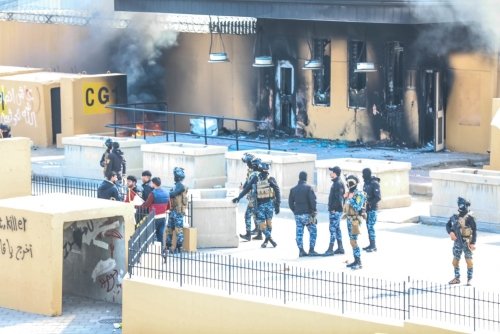
The threat involved increasing indirect-fire attacks on the U.S. Embassy and the Baghdad airport logistical facility as well as attacks using improvised explosive devices (IEDs) on convoys that supplied the U.S. Embassy and the coalition forces. This was facilitated by large numbers of Iranian-backed militia units in the Green Zone and Iraqi militia leaders who controlled security in the Green Zone and at the airport. There were also indications of planning for a more violent attack on the embassy by mass assault, similar to the attack in December 2019, only this time using heavy weapons. The United States wanted the government to take actions to end the attacks and reduce the militia presence and control in the Green Zone and the airport. By the end of 2020, the Iraqi government had taken only limited steps to comply.
In Syria, the United States backed the Syrian Democratic Forces (SDF), an alliance of local militias, to fight ISIS. Would the SDF be able to contain ISIS without U.S. or other foreign support?
If the United States and the SDF ended cooperation, the SDF could probably contain ISIS but with difficulties due to its lack of any airpower and the loss of its credibility and status among Arab communities, where the ISIS threat is greatest. But the SDF could not cope with ISIS if Russia and the Assad government took advantage of a U.S. withdrawal to seize control of northeast Syria. On its own, the SDF could not stop them.
Would the disparate factions in the SDF—the predominantly Kurdish People’s Protection Units (YPG) and groups of tribal Arabs, Turkmen and Assyrians—hold together without U.S. support or if U.S. troops left Syria?
It’s unlikely.
How important is the SDF long-term in the military campaign against ISIS?
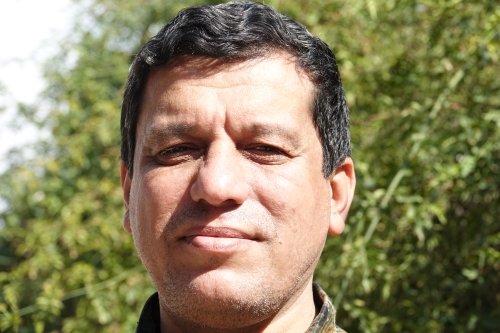
The SDF is vital to suppress ISIS efforts to reconstruct a caliphate in its homeland along the Euphrates River. It’s also vital because there will be no end to ISIS in Syria until the Syrian civil war ends and Damascus has a government that accommodates its Sunni Arab majority. Given President Bashar Assad’s political intransigence and Moscow’s acquiescence, the civil war will only end with ongoing pressure from multiple axes: First, the U.S.-led “relentless pressure” political and economic campaign on Assad and his allies. Second, military pressure from Turkey in the north; Israel from the air; U.S. forces in the northeast and at the Tanf base; opposition and SDF armed forces, particularly in the north; and military deterrence by the United States, Britain and France against Syria’s use of chemical weapons. The linchpin of all that military pressure is the U.S. presence in northeast Syria, without which the other elements are likely to unravel or lose effectiveness. But that U.S. presence depends on the willingness and capability of the SDF to host U.S. forces.
What support does the SDF need to survive? What support did the United States provide the SDF?
It needs limited direct military support (in training and weapons), but it depends on U.S. air power to strike ISIS targets and control the air over SDF-held territory. The SDF also needs U.S. diplomatic support to fend off military and political efforts by Turkey, Russia and the Assad government to weaken the SDF or encroach on the territory it controls. Finally, it needs stabilization and humanitarian assistance, especially to Sunni Arab areas.
The United States has also engaged in a diplomatic effort to make SDF control of territory more palatable to Arabs and the Kurds not in the Democratic Union Party (the powerful SDF-linked political party among Syria’s Kurds) without creating a statelet. U.S. diplomacy has also sought to ensure that the SDF does not make decisions on the long-term political or territorial organization of Syria, beyond what is laid out in U.N. Security Council Resolution 2254.
Financial support to the SDF is limited to a few hundred million dollars annually, much of it from other coalition partners.
What does the YPG or the SDF need to do to survive politically long-term? What does it want from the Syrian government?
The SDF wants to maintain its relationship with United States; avoid provoking Turkey; and maintain contact with but not yield to the Assad government or Russia. To survive, the SDF needs to avoid taking any of four steps: cutting off all oil shipments to Damascus; declaring autonomy or independence from Syria, analogous to the Kurdish Regional Government (KRG)’s disastrous referendum in Iraq in 2017; strengthening relations with the Kurdistan Workers’ Party (PKK), which is considered a terrorist group in Turkey; or attacking Turkey from northeast Syria. Any of those actions could lead to counterstrikes on the SDF. Long-term, the SDF wants Damascus to grant political autonomy to the northeast region and allow the SDF to maintain an armed force independent of the Syrian Army.
Who controls the oil fields that ISIS formerly held in northeast Syria? Who runs them? How much revenue do they generate? Who gets the oil? Who gets the revenue?
The SDF controls the oil fields. Production is roughly 100,000 barrels per day. Some of it is consumed in northeast Syria. Some is sold, usually at bargain prices, to various local actors. Some is traded to the Syrian government through middlemen, as ISIS also did. Oil sales are annually worth several hundred million dollars, most of which flows to the SDF and associated local government organs.
How has Turkey’s intervention in northern Syria impacted the campaign against ISIS. How has it complicated or affected U.S. goals?
Very little. The main impact has been the risk of a major new intervention that would weaken the SDF or force a U.S. departure.
Can the United States cooperate with Turkey in Syria and Iraq while also pushing back on other issues, such as Ankara’s purchases of Russian military equipment?
So far, yes—apart from the issues in northeast Syria, which have to be managed carefully, the United States works well with Turkey on Syria and Iraq issues, and Washington understands that—next to the United States—Turkey is one of the most important “friendly” outside players in both Syria and Iraq.
In 2014, Iran came to Iraq’s aid after ISIS marched within 25 miles of the Iranian border. What role is Iran playing in countering ISIS today?
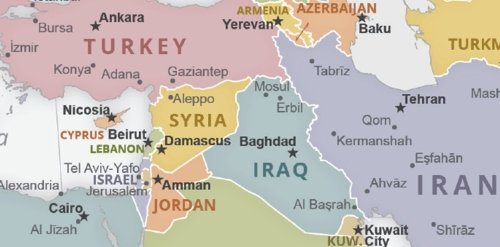
Almost none, beyond limited funding of, arming, and controlling some of the militias in Iraq.
How does Iran’s presence in Iraq—including its military footprint, political influence and business dealings—impact the U.S.-led coalition’s efforts against ISIS?
Iran is the most important threat to the U.S. presence in Iraq. The threats are from either direct Iranian military action or attacks by pro-Iranian militias that seek one of three things: forcing the United States to leave Iraq; turning Iraq into an unsustainable battlefield between the United States and Iran; or compelling the Iraqi government or parliament to order the United States and the coalition to leave.
Can Iraq contain ISIS without the help of Iranian-backed militias?
Yes, assuming the coalition is present.
You said that Israel played a “huge role” against ISIS. What did it do? Did it engage in air strikes? Or provide intelligence, given its military campaign in other parts of Syria?
It is a major player in efforts by nearby Arab states to defeat ISIS. Israel deploys all elements of national power—diplomatic, economic, military, intelligence, and covert operations—in its engagements. By its actions against Iran in Syria, Israel contributes to pressure against the Assad government that could eventually lead to a political resolution of Syria’s civil war, which is essential to an enduring defeat of ISIS throughout Syria.
What would it take for ISIS or a successor group to carve out a caliphate in the Middle East again?
Another cataclysmic event or events that would weaken key Arab states and distract the United States and the international coalition.
Author
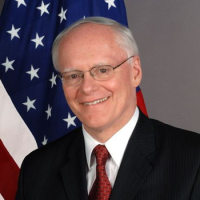
Former ambassador to Iraq and Turkey, and Special Envoy to the Global Coalition To Defeat ISIS

The Islamists
Learn more about Hamas and how it relates to similarly aligned organizations throughout the region. Read more


Middle East Program
The Wilson Center’s Middle East Program serves as a crucial resource for the policymaking community and beyond, providing analyses and research that helps inform US foreign policymaking, stimulates public debate, and expands knowledge about issues in the wider Middle East and North Africa (MENA) region. Read more

Explore More
Browse Insights & Analysis
An Act of Terror Cannot Occur on Russian Soil
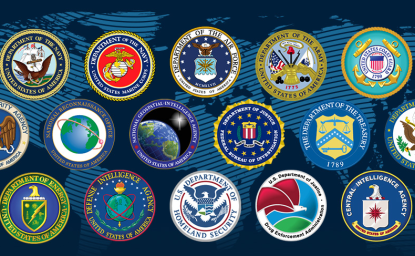
US Intel: ISIS, al Qaeda, Hamas, & Hezbollah
